Family
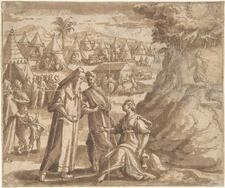
Elisheba: Bible
Elisheba was the wife of the high priest Aaron and the mother of their four sons, but she does not appear in any stories. Mention of her in the genealogy signifies the importance of women in the destiny of their children.
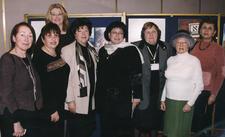
Emunah
Equality, Religion and Gender in Israel
Although the principles of equality for women under the Declaration of Independence and the Women’s Equal Rights Law were not endowed with constitutional force, and the 1992 Basic Law: Human Dignity and Liberty does not expressly include the principle of equality, these laws have been interpreted by the courts as securing the principle of gender equality as a basic principle of the legal system.
Esau, Wives of: Midrash and Aggadah
Esau’s three wives are given more context and background by the rabbis than in the Torah. Esau’s first two wives, Adah and Judith, are described as adulterous and idolatrous, while his third wife, Mahalat, is interpreted as either Esau’s repentance or his fall further into evil.

Esther: Bible
Esther, the main character in the book named after her, is a young Jewish woman who becomes queen of the Persian empire and risks her life by interceding for the Jewish people to save them from a pogrom. Set in the Persian diaspora, the Book of Esther depicts the struggle for Jews to survive in the face of hostility in a foreign land.

Esther: Midrash and Aggadah
Queen Esther, the central character in the Biblical book named after her, is extensively and sympathetically portrayed in the Rabbinic sources. In their commentary on the Book of Esther, the Rabbis expand upon and add details to the Biblical narrative, relating to her lineage and history and to her relations with the other characters: Ahasuerus, Mordecai, and Haman.
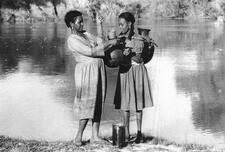
Ethiopian Jewish Women
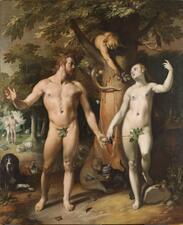
Eve: Apocrypha

Eve: Midrash and Aggadah
Eve’s character is posited to be that of the original and quintessential woman. The Midrash interprets her traits as representative of the negative aspects of femininity. Eve’s punishment for her sin is also tied to the traditional ideas of the fundamentals of womanhood – childbirth, pregnancy, and male spousal domination.
Family During the Holocaust
Although Jewish family life was destroyed and restructured in many ways during the Holocaust, it still often provided strength and a sense of normalcy. In many cases women became the family’s main income earner and were charged with many new tasks and responsibilities. Families were also frequently broken up by deportation, escape abroad, and death.
Rabbi Moses Feinstein
Rabbi Moshe Feinstein, one of the great Jewish legalists of the twentieth century, wrote numerous legal decisions responding to and affecting women’s lives. His pronouncements regarding women aimed to respond to women’s issues with respect and careful consideration, while also establishing a system in which the roles of men and women were distinctly imbalanced.
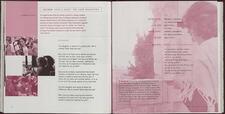
Feminist Jewish Ritual: An International Perspective
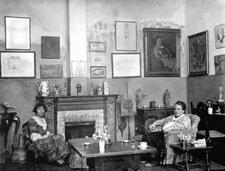
Fiction in the United States
Literature by American Jewish women reflects historical trends in American Jewish life and indicates the changing issues facing writers who worked to position themselves as Americans, Jews, and women.
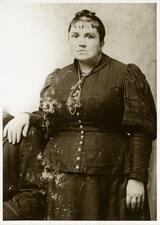
Rosa Fineberg
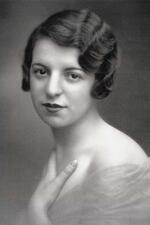
Paulette Weill Oppert Fink
After Paulette Fink’s husband, serving in the French Army, escaped capture, Fink and her family fled to the unoccupied zone of France and joined the Resistance, hiding Jewish children and helping them escape. Despite her husband’s death, Fink continued working with the Resistance and the Jewish Brigade. When the war ended, she continued her work with refugees before settling in Minneapolis.
Marjorie Fisher
Selma Fraiberg
Selma Fraiberg was a psychoanalyst, author, and pioneer in the field of infant psychiatry. Her classic parenting book The Magic Years was the result of her years of research in the field of social work and her experiences as a stay-at-home mother.
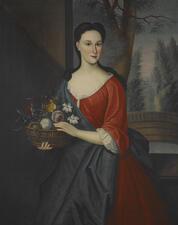
Bilhah Abigail Levy Franks
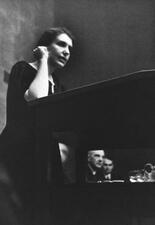
Anna Freud
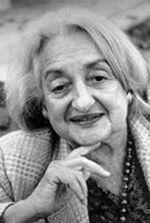
Betty Friedan
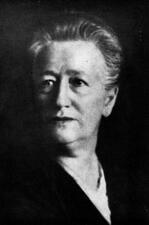
Henriette Fürth
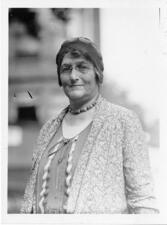
Bird Stein Gans
Bird Stein Gans was among the first generation of women involved in what was then the new field of parent education. She served as president of the Society for the Study of Child Nature for many years, significantly expanding its membership and impact.
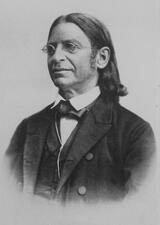
Abraham Geiger
Abraham Geiger (1810-1874) was one of the most influential Jewish thinkers of the nineteenth century. He was one of the major intellectual leaders and founders of the Reform movement in Germany and a strong supporter of Jews entering European society. As part of his vision of Judaism, he argued for a Judaism oriented around the home and domestic life, but also a Judaism that both elevated and sidelined the women that had long created that domestic life.
Elisabeth Rozetta Geleerd
Elizabeth Rozetta Geleerd’s work on extreme psychological conditions such as amnesia and schizophrenia led to new methods for treating seriously disturbed children and adolescents. Along with opening her own private practice, Geleerd became a training analyst and a member of the educational committee of the New York Psychoanalytic Institute and helped shape its child and adolescent analysis program.


